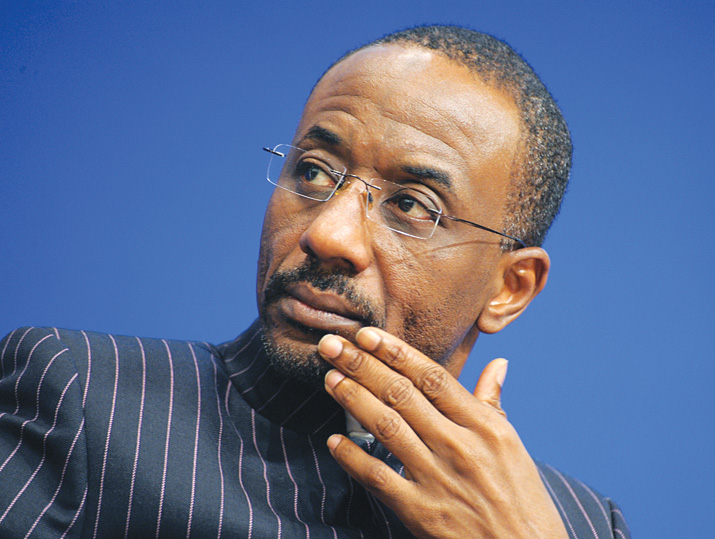Nigeria has seized the passport of ousted central bank governor Lamido Sanusi, an ally of the outspoken government critic said Friday, a day after he was removed from office in a move that sparked fears of economic turmoil.
President Goodluck Jonathan suspended the widely respected central bank chief on Thursday over allegations of misconduct, a move many analysts saw as politically motivated.
Sanusi, who learned of his suspension while at a regional bankers’ meeting in Niger, flew back to Lagos and was met by officers from Nigeria’s main intelligence branch, according to Nasir el Rufai, a former cabinet member and Sanusi ally.
Rufai told AFP the intelligence agents allowed Sanusi to leave the terminal, but seized his passport.
“His passport is still with them,” Rufai said, explaining that he had been in contact with Sanusi continuously on Friday.
The intelligence branch, known as the Directorate for State Services, was not available to comment. Sanusi has dismissed the allegations of misconduct against him and said he believed he was removed because of his attacks on the powerful state Nigerian National Petroleum Corporation (NNPC).
Sanusi, a vocal critic of entrenched corruption in Africa’s top oil producer, publicly accused the NNPC of misappropriating $20 billion (14.5 billion euros in public funds).
The allegations were met with fierce denials from the NNPC, regarded by many as the epicentre of graft in Africa’s most populous country.
He had been applauded by an array of economists for cleaning up a rotten banking sector that approached collapse following the outbreak of the global financial crisis in 2008 and for aggressive moves to protect the Nigerian naira.
– Currency fears –
Sanusi’s removal, four months before his term was set to expire, has raised fears in markets over the long-term prospects of the naira, and the stability of Nigeria’s economy more broadly. Razia Kahn, head of Africa Research at Standard Chartered, told AFP that investor confidence in Nigeria had already been hurt by Sanusi’s ouster.
The naira fell to 168.90 against the dollar after the news was announced, believed to be its lowest rate in two decades.
“I think the expectation is that we are going to see further naira weakness,” Kahn said, noting that Sanusi was widely regarded for his currency protection efforts.
“The Nigerian naira which had been one of Africa’s most stable currencies over the past five years is now set to plunge on the renewed political instability,” the New York and London based Damina Advisors said in a statement. The bank’s interim governor Sarah Alade told Nigerian media Friday that she would adhere to Sanusi’s policies and aggressively defend the naira but the picture after June is less clear.
Kahn said Jonathan’s nominee to permanently take over the central bank, Godwin Emefiele, had been critical of Sanusi, but that his views may change when he joins the public sector.
– Politically motivated –
Sanusi’s allegation against the NNPC earned him powerful enemies, including within the ruling Peoples Democratic Party (PDP), which is wracked by an unprecedented internal crisis and faces a challenge from a new opposition mega-coalition, the All Progressives Congress (APC).
Jonathan is widely thought to be seeking the PDP nomination for elections next February, but rivals within the party have been pressing for him to stand aside.
Analysts say that to survive, the president may have to muster all the powers of incumbency, including access to a public purse awash in oil money.
Some see Sanusi’s ouster as an attempt to weaken the independence of the central bank and sideline a governor who has not hesitated to speak out when public money goes missing.
“They couldn’t wait four months for his term to end,” Rufai, now an APC leader, told AFP. “They wanted to start raiding the treasure and it is all about the 2015 election. One doesn’t need to be a member of the opposition to know that.” AFP

